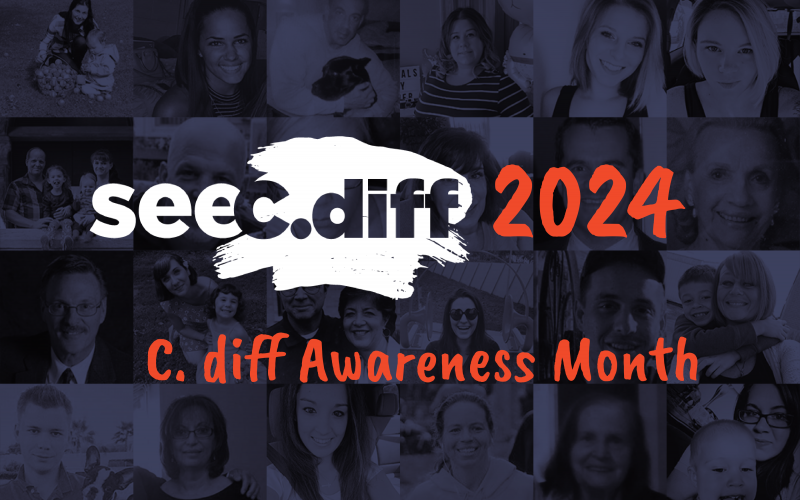Other Categories
by Christian John Lillis and Helen Biegel, R.N.
This post expands on a letter to the editor we published in the March 18th print edition of the New York Post, in response to Betsy McCaughey’s editorial “The deadly plague American hospitals refuse to face”. See the letter here.
The late writer Paul Monette wrote that “grief is a sword, or it is nothing.” How we use that potent tool, especially in advocacy for public health, matters greatly.
Having learned from the AIDS crisis, the CDC does not deserve to be beaten up for its responses, either to Ebola or to the epidemic of Clostridium difficile infections that sickens an estimated half a million Americans each year. When an activist like Betsy McCaughey attacks the CDC for its responsiveness to both diseases, she displaces anger from the plague to the problem-solvers.
We understand activism and anger, and we believe they must be focused not at public health professionals and caregivers, but at three pernicious barriers to progress. These are failure by lawmakers to fund disease-fighting properly, foot-dragging by healthcare facilities and their evaluators to insist on compliance with widely publicized best practices in prevention, and ignorance among the public of the C. diff. epidemic, with barely one-quarter of Americans aware of this epidemic that strikes especially hard at seniors.
When someone we loved dearly, Peggy Lillis, died of a C. diff. infection in Brooklyn in 2010, our grief became a tool for engaging ourselves and others in a nationwide fight to end an epidemic that kills more than 29,000 Americans each year. In the past 5 years, we have achieved important breakthroughs in stopping C. diff. The CDC and its leaders, as well as the Obama Administration, have shown leadership in this collective, team effort. Lashing out at the CDC, as McCaughey has done, is the wrong tack, resulting from some faulty reasoning on her part
First, the CDC is an advisory agency, not regulator with strong enforcement powers, as McCaughey mistakenly presumes. CDC guidelines are important and widely followed, but they are not mandates. Nor does the CDC have the ability to impose any sanctions on entities that do not follow its recommendations. During the Ebola panic, which McCaughey cites, the media was incredibly irresponsible in failing to explain the CDC’s actual role, while fueling panic among Americans, who remain far more prone to infection, suffering, and death from C. diff than a virus that ravaged West Africa.
Second, while hospitals should do much more to prevent C. diff infections, the agencies responsible for ensuring they do so do not include the CDC. The Joint Commission, an independent nonprofit, not a government agency, accredits most American hospitals. The Center for Medicare and Medicaid Services also plays an influential role as one of the largest payers for services. CMS compels hospitals to report their infection rates to the CDC as a condition of participation. Both of these agencies wield far more power over hospital policy than does the CDC.
Third, while we laud the impressive reduction in CDIs by facilities such as the Mayo Clinic and Britain’s National Health Service, blaming the CDC for lack of progress by some New York hospitals is giving them an easy way out. McCaughey cites Mount Sinai and Montefiore as cautionary tales of CDC guidelines “gone wild”, but she doesn’t credit those same guidelines with the significant progress made by the hospital and nursing home collective in Rochester, New York, which brought down its C. diff rates by 36 percent over the past four years following CDC’s recommendations for geographic collaboration. Similarly, the CDC’s call for antibiotic stewardship was cited by the Hospital and Healthsystem Association of Pennsylvania as one reason for that state’s 8 percent drop in C. diff infections.
Finally, no one wants to reduce C. diff infections more than our family. Losing Peggy to this awful disease has changed our lives irrevocably. We agree with McCaughey that losing 29,000 Americans each year to this preventable disease is an outrage, as is the suffering of tens of thousands more Americans who survive CDIs but are permanently harmed. New Yorkers and all Americans of good conscience should demand more or the hospitals that serve us. At the same time, the number of community acquired CDIs continues to grow, surpassing 10 percent of cases. So it’s clear that we need broad-based public awareness to ensure that those afflicted are treated quickly.
More than anything, we need to stop the blame game and focus our anger accurately and effectively to help end a largely preventable and unsung scourge in our health system and society, the C. diff. epidemic.



I would like to make a donation to the fund. How do I go about it?
Hi Lauretta, you can donate online at https://cdiff.org/donate-now/.
Thank you!